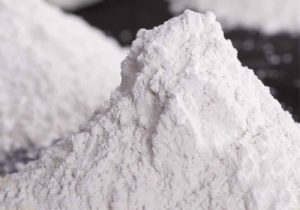
CP-992 Organophilic clay
CP-992 Organophilic Clay, the wet process improved viscosifier and gelling agent . It is a rapidly dispersing.
Bentonite drilling mud: Camp Shinning is the most prominent provider of organoclay Bentonite clay products. In many types of oils, our chemicals are utilized as viscosifiers and gelling agents. They are simple to disseminate and have a rapid yield, which contributes to their excellent performance efficiency. We wan

CP-992 Organophilic Clay, the wet process improved viscosifier and gelling agent . It is a rapidly dispersing.

CP-982 Organophilic Clay is an amine treated bentonite with a moderate temperature performance.

CP-150 Organophilic Clay is a self-activating organoclay that disperses easily and performs well in diesel, low aromatic mineral oil, modified vegetable oil, and synthetic base fluid formulations.
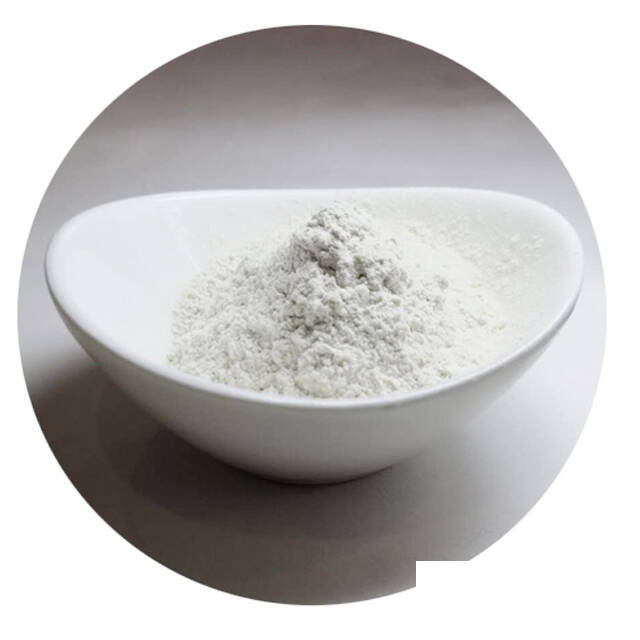

CP-10 organoclay is a rheological additive made of organoclay. It is used in non-polar to moderately polar aliphatic and other solvent systems

CP-MPZ organoclays is an modified bentonite that is used in solvent and resin systems ranging from non-polar to highly polar.

The CP-MPS rheology modifier is a type of organo clay rheological additive that is used in solvent and resin systems ranging from non-polar to high polarity.
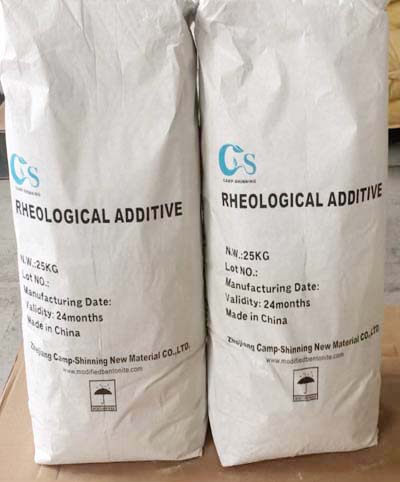
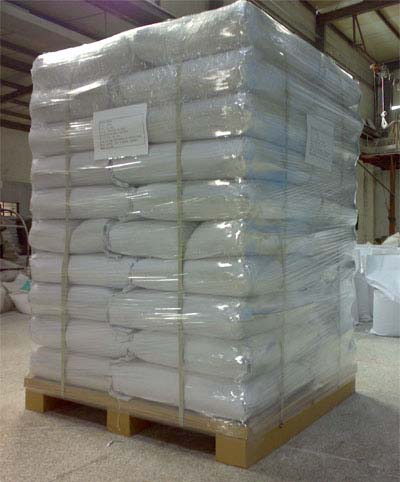
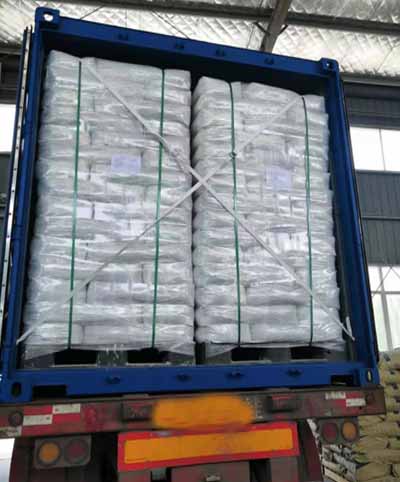
Organoclay Supplier / Manufacturer :
Internet address: https://www.rheologymodifiers.com/
Email address: [email protected]
Whatsapp / Wechat: +86-13185071071
Organophilic Clay Supplier / Manufacturer :

CP-EW Organoclay for Water Based paint. It is primarily employed in water borne paint systems,such as latex paint. So it is a good water based additive in paints,coatings,grease etc.

CP-EWS Modified bentonite It is employed in a water-borne coatings system. CP-EWS organoclay outperforms CP-EW in terms of thixotropy, transparence, and dispersion.

CP-WBS Rheology Modifier is rheological modified bentonite. It is mostly employed in water-borne systems.


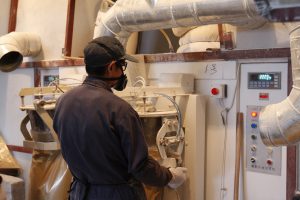
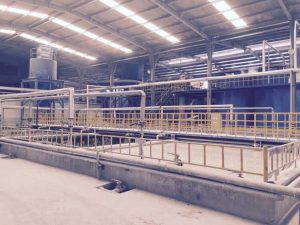

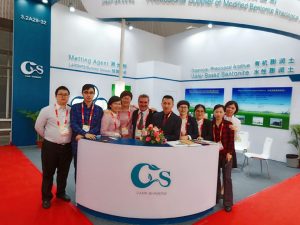
The Organoclay bentonite | Organophilic clay -specialized Zhejiang Camp-Shinning New Material CO.,LTD. and Hangzhou Camp-Shinning CO.,LTD. are subsidiaries of Camp-Shinning.
Camp-shinning concentrated on high value-added, high-technology organo bentonite series products, particularly in research, development, manufacturing, and sales of organic (solvent based organoclay) and inorganic bentonite (water based organoclay).
Our Organophilic bentonite clay finds widespread application in oil drilling mud, paint, coating, lubricating grease, adhesive, construction mortar, cosmetics, and waste water treatment, among other applications. A group of world-class professional users and distributors, such as SUN CHEMICAL,,SIEGWERK,LEHMANN &VOsS, and others, have acknowledged our dependable quality.
Current annual production of organic bentonite clay | organoclay is 20,000 metric tons, while refined bentonite production is 15,000 metric tons.
Our ISO 9001 quality system certification and IS014001 environmental management system certification, as well as our own mine with superior ore quality and production of proprietary technology, ensure the long-term quality and supply stability of our Organoclay bentonite | Organophilic clay.
Our mission is to provide users with superior Organoclay bentonite | Organophilic clay and services and to collaborate with them to achieve success and glory.
Internet address: https://www.rheologymodifiers.com/ and email address: [email protected]
Whatsapp / Wechat: +86-13185071071
Organoclay | Organophilic Clay CP-2 also named amine treated Bentonite.
In diesel oil based fluids,organophilic clay viscosifier CP-2 are used to increase carrying capacity and suspension properties, providing support for weight materials and improved cutting removal. Organophilic bentonite also aids in filter-cake formation and filtration control.
Properties
Composition Organically modified bentonite clay
Physical appearance Off white to tan free-flowing powder
Moisture content (105℃,2hr) ≤4%
Particle size (<76μm or 200mesh) ≥95%
Specific Gravity 1.6-1.8
Advantages
Effective viscosifier and gellant
Aids control of fluid loss to the formation
Increases emulsion stability
Improves cuttings carrying and hole cleaning capacity
Suspends weighting materials and other solids
Confers temperature stability to the fluid
Application
Base oil:
Diesel Oils
Crude Oils
Mineral Oils
Synthetic Oil
Viscosifying drilling Fluids:
Oil based drilling fluids
Invert emulsion fluids
Workover fluids
Completion fluids
Casing packs
Packer fluids
Spotting fluids
Package
Organoclay | Organophilic Clay CP-2 is packed in 50lb(22.7kg) or 25kg/bag or customized,multi-wall paper sacks or Kraft paper bag with PE liner or customized.
Storage
CP-2 Store in a dry, well-ventilated area with temperature of 0℃-30℃. Keep container closed. The quality guarantee period is 24 months.
Notice
The information on use is based on data which are believed reliable, but any recommendation or suggestion made is without guarantee or warranty, since the conditions of use are outside our control. All products are sold on the conditions that purchasers shall make their own tests to determine the suitability of such products for their purpose and that all risks are assumed by user. We disclaim any responsibility for damages resulting from careless or improper handling or use. Nothing herein is to be taken as permission, inducement or recommendation to practice any patented invention without a license.
Internet address: https://www.rheologicaladditive.com/ and email address: [email protected]
Whatsapp / Wechat: +86-13185071071
Bentonite drilling mud Organoclay bentonite is a common ingredient in drilling muds based on oil. Traditionally, large amounts of these clays are added to the mud formulation to give it thixotropic properties. However, more recent formulations have reduced the amount of clay while still retaining the drilling properties. Structure : Bentonite drilling mud Organoclay bentonite is a clay mineral found in natural gas drilling mud. The clay mineral adds a certain percentage of stability to drilling mud. When it exceeds a certain level, however, its stability decreases. It also raises the yield stress, viscosity, and shear rate. Bentonite is an excellent drilled shaft sealant. It forms a firm sludge cake on the bore wall and provides borehole stability. The drilling fluid may require fine or coarse bentonite particles, depending on the ground structure. Increased organoclay content improves the stability and yield stress of oil-water invert emulsions. A high concentration of organoclay improved interactions between water droplets, increasing stability and viscosity. These findings have implications for the development of oil-based drilling fluids. This article summarizes the main features of the new mud and what it can do for oil-based drilling. When compared to other drilling fluids, organoclay bentonite drilling fluids perform better. Bentonite disperses well in water-based fluids, and bentonite composites can improve the hydrophilicity of bentonite. However, the experimental temperature must be lower than the monomer polymerization temperature. Applications : Bentonite drilling mud The high clay content of organoclay bentonite drilling fluids improves drilling fluid thixotropy. The organophilic clay CP-992 improves the properties of drilling fluids. Organophilic clays are used as primary viscosifiers in drilling fluids due to their low equilibration temperatures and high equivalent circulating density. Because of their slow chemical reaction time and proclivity to stratify, they are an excellent choice for the primary viscosity role in drilling fluids. These clays, however, can be expensive and have a limited temperature range. Organophilic clays can undergo colloidal thermal degradation and excessive viscosity when exposed to high temperatures. Organoclay bentonite is used in a variety of applications, including high-temperature drilling for gas and oil. The composite has good water switching properties and a low critical phase transition temperature. The mixture exhibited excellent filtration, plugging, and rheology properties, making it an excellent substitute for conventional bentonite. For a variety of reasons, oil-based organoclay bentonite drilling fluids are preferred over water-based drilling muds. They are, for example, more durable than water-based alternatives, reduce the risk of pipe blockage, and provide excellent hole stability. Another advantage of the compositions is that they are highly thixotropic, which means they can be recycled and reused. Price : Bentonite drilling mud Organoclay bentonite is typically priced between $1.7 and $3.2 per kilogram. The cost of bentonite varies depending on its purity, process treatment, and type. This mineral is an excellent choice for oil and gas drilling muds. Organoclays are hydrophobic montmorillonite modifications. They are commonly used as a tackifier in organic phase dispersions as well as an enhancer of polymer nanocomposites. They also have critical rheological properties at mud line temperatures, which could be important in drilling fluids. Drilling fluids with high rheology can cause severe downhole accidents and fluid losses. Organophilic bentonite is a great drilling fluid gelling agent and source. Because of its low density and low temperature sensitivity, it is an excellent choice for drilling fluids. It also has good lubricating properties, making it an excellent choice for preventing drilling collapse. Deep-water drilling frequently employs organoclay drilling fluids. The rheological properties of these muds are exceptional. Heat causes high viscosity losses in oil-based muds, but organoclays have good rheological stability at high temperatures. Dispersibility Organoclay bentonite is a popular deepwater drilling mud. Its dispersibility is determined by two fundamental factors: its hydrophobicity and density. Natural and modified bentonite are combined to form organoclay bentonite. Organoclay bentonite is a low-cost drilling mud with a moderate thermal performance. Its dispersibility rheology ranges from 115 to 150 degrees Fahrenheit, with a maximum of 300 degrees Fahrenheit at the well site. Because organoclay does not respond predictably to temperature changes, the temperature of the hole, where the mud is exposed to higher temperatures, may affect its dispersibility. This changes the rheology of the mud and necessitates dilution. At high temperatures and pressures, organoclay bentonite disperses poorly. Modified bentonite improves this property by increasing the material’s specific surface area and pore structure. Furthermore, it reduces particle aggregation and flocculation. These characteristics improve dispersibility while decreasing settling volume and flow viscosity. Tolerance for temperature : Bentonite drilling mud Organoclay bentonite is a mineral that is commonly used in water-based drilling fluids. At high temperatures, it is a porous material that is difficult to reduce in filtration. This issue, however, can be solved by using monomers that give bentonite thermo-responsive properties. The density of oil mud is inversely proportional to the clay content of an oil mud formulation. Clay content varies from nearly zero in low densities to as much as 25 pounds per barrel in some cases. This concentration of clay is also affected by the degree of suspension and hole cleaning. The formulations are suitable for oil-based drilling fluids with a consistent rheological profile even at high temperatures. This type of drilling fluid is especially effective in deep wells with high temperatures and pressures. Many previously used formulations, however, did not respond well to such conditions. Organic bentonite cost The cost of organic bentonite is determined by a number of factors. The material is mined and packaged all over the world. A 1,000L bag of bentonite mix typically costs between AUD$14 and AUD$28. While price per bag is a convenient way to compare costs, it is not always useful when comparing grades. In many cases, you will need to seek technical assistance in order to select the appropriate grade. Using higher quality bentonite lowers the cost of drilling fluid. The increased viscosity will also help with hole cleaning and will lower overall costs. A high-yield bentonite, on the other hand, will have less filtration control than a lower-quality bentonite. The best way to determine which product is best for you is to speak with a technical sales manager. Organic bentonite is less expensive than other drilling fluids, but different suppliers charge different prices. While the price difference may appear minor, it can add up to $1 or $2 per bag. As a contractor, you must ensure that you are receiving good value for your money. Consider a synthetic drilling mud if you’re not sure what’s best for you. Bentonite calcium is widely available. Its quality is determined by the application. Some construction projects require only construction-grade bentonite, whereas others may require higher-grade materials for drilling and tunneling.
Organoclay Supplier / Manufacturer :
Internet address: https://www.rheologymodifiers.com/
Email address: [email protected]
Whatsapp / Wechat: +86-13185071071
Organophilic Clay Supplier / Manufacturer :

CP-180 organoclay is an organo clay rheological additive (modified montmorillonite) designed specifically for use in solvent-based systems

CP-34 organoclay is a modified bentonite that has been specifically designed for use in solvent-based systems.

CP-EDS modified bentonite is a kind of organo clay rheological additive. It is used in systems of medium polarity and high polarity system.
Bentonite drilling mud